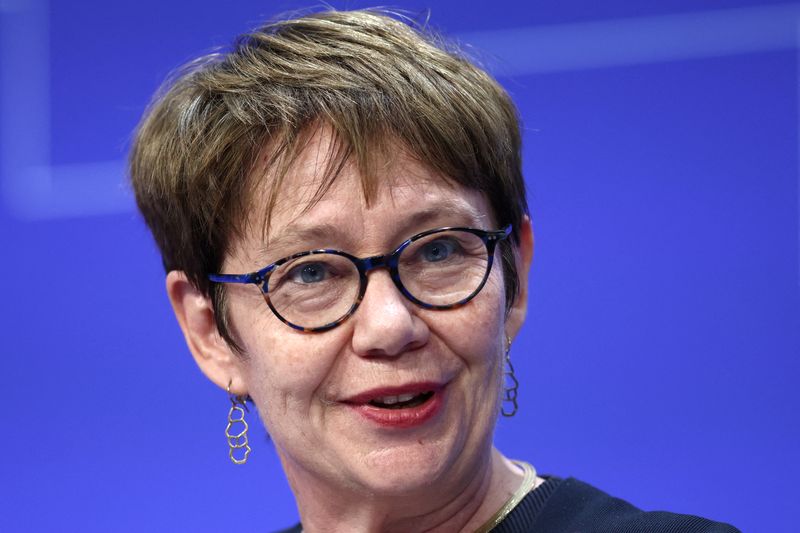By Jonathan Spicer
ANKARA (Reuters) - Turkey must forge ahead with its new and more sustainable economic strategy in order to draw back foreign investors, EBRD President Odile Renaud-Basso told Reuters as the bank itself invested record levels in the country.
Since June, a new-look cabinet and central bank have sought to ditch years of unorthodox policymaking by embracing aggressive interest rate hikes and beginning to unwind the state's heavy-handed financial market regulations.
The new policy path "needs to carry on" as a long-term strategy, Renaud-Basso said in an interview on Thursday, just before meeting Central Bank Governor Hafize Gaye Erkan who earlier in the day delivered another 500-point rate hike.
Asked what would finally convince foreign investors to feel confident after a years-long exodus from Turkey, she said: "There needs to be a bit of time to see a persistent and durable policy strategy."
The latest rate hike to 40% reflects this, Renaud-Basso said, adding the policy rate "will need to remain at a high level for quite a long time to really rebuild confidence".
The European Bank for Reconstruction and Development (EBRD) invests more in Turkey than in any other country and this year is on track to deliver at least 2.5 billion euros, an all-time high.
Much centers on the southeast, where earthquakes in February killed more than 50,000 people and flattened cities and towns. EBRD plans to invest 1.5 billion euros over two years with a focus on repairing water, electricity and other infrastructure.
ERDOGAN RISK
At EBRD's Ankara office, Renaud-Basso said the bank had been winding down investments in Turkey heading into this year.
"But seeing the policy shift, which is very important, and also with the impact of the earthquake we have increased it again and reached the highest historical level for investment," she said.
Ankara says it aims to attract outside bond investors and foreign direct investment (FDI) to help bolster depleted FX reserves, underpinning an effort to cool inflation that is above 61% and expected to climb into next year.
The central bank said on Thursday it will maintain tight policy "as long as needed to ensure sustained price stability."
But after years of President Tayyip Erdogan's unorthodox and sometimes erratic policymaking - including his abrupt firing of four central bank chiefs in the last four years - investors are hesitant. Foreigners hold less than 1% of Turkish bonds.
"In the past indeed there have been some turnarounds," said Renaud-Basso, who also met Finance Minister Mehmet Simsek on her four-day visit to Turkey. But "listening to the authorities, I am confident that they know this needs to be sustainable."

The funds for earthquake recovery could rise but the first priority is disbursing the allotted 1.5 billion euros, she said, after having also visited the disaster zone this week.
Winter "is going to be very difficult for people...particularly in (the hardest-hit province of) Hatay where living conditions and shelters are minimal," she said.